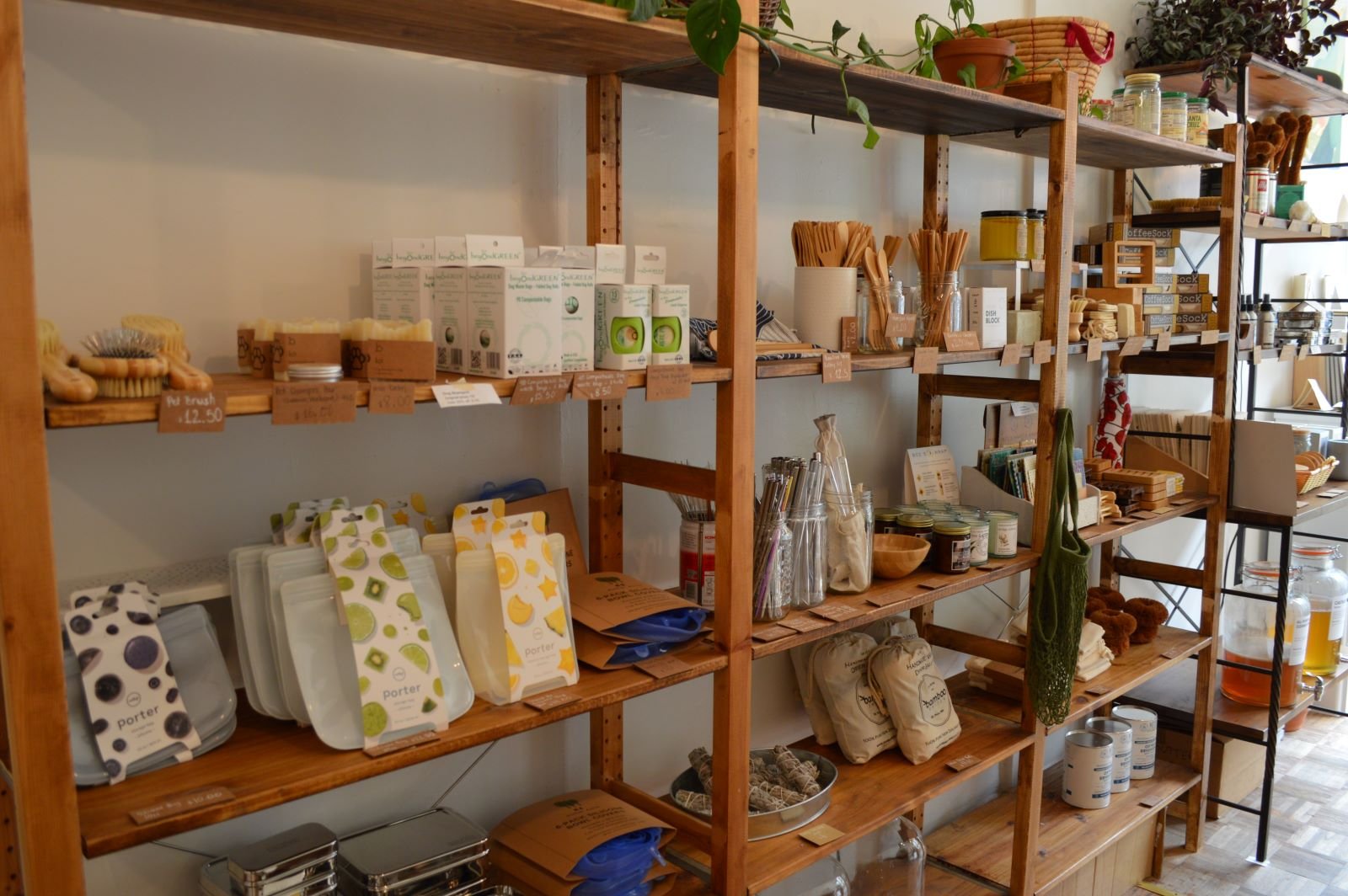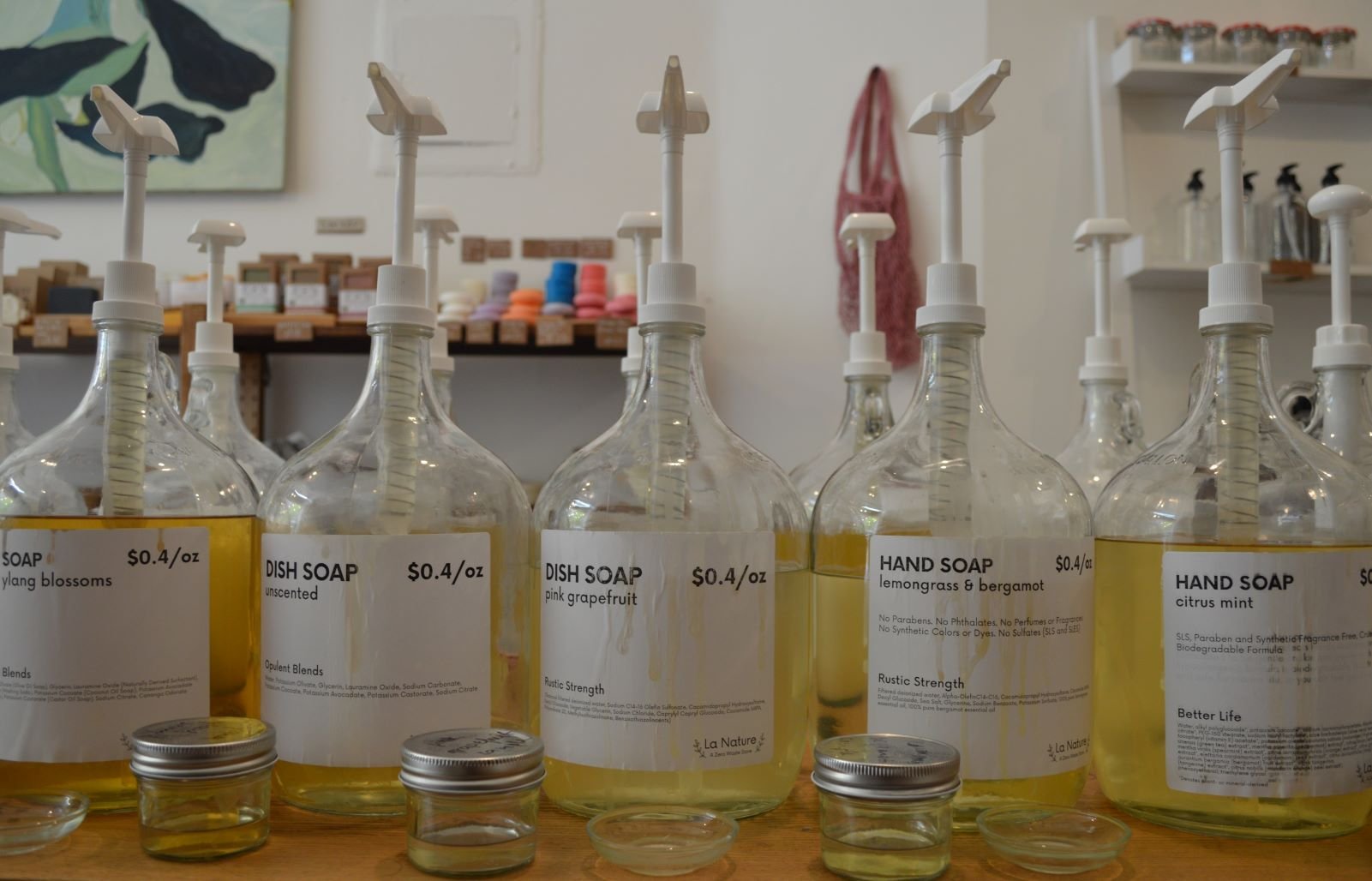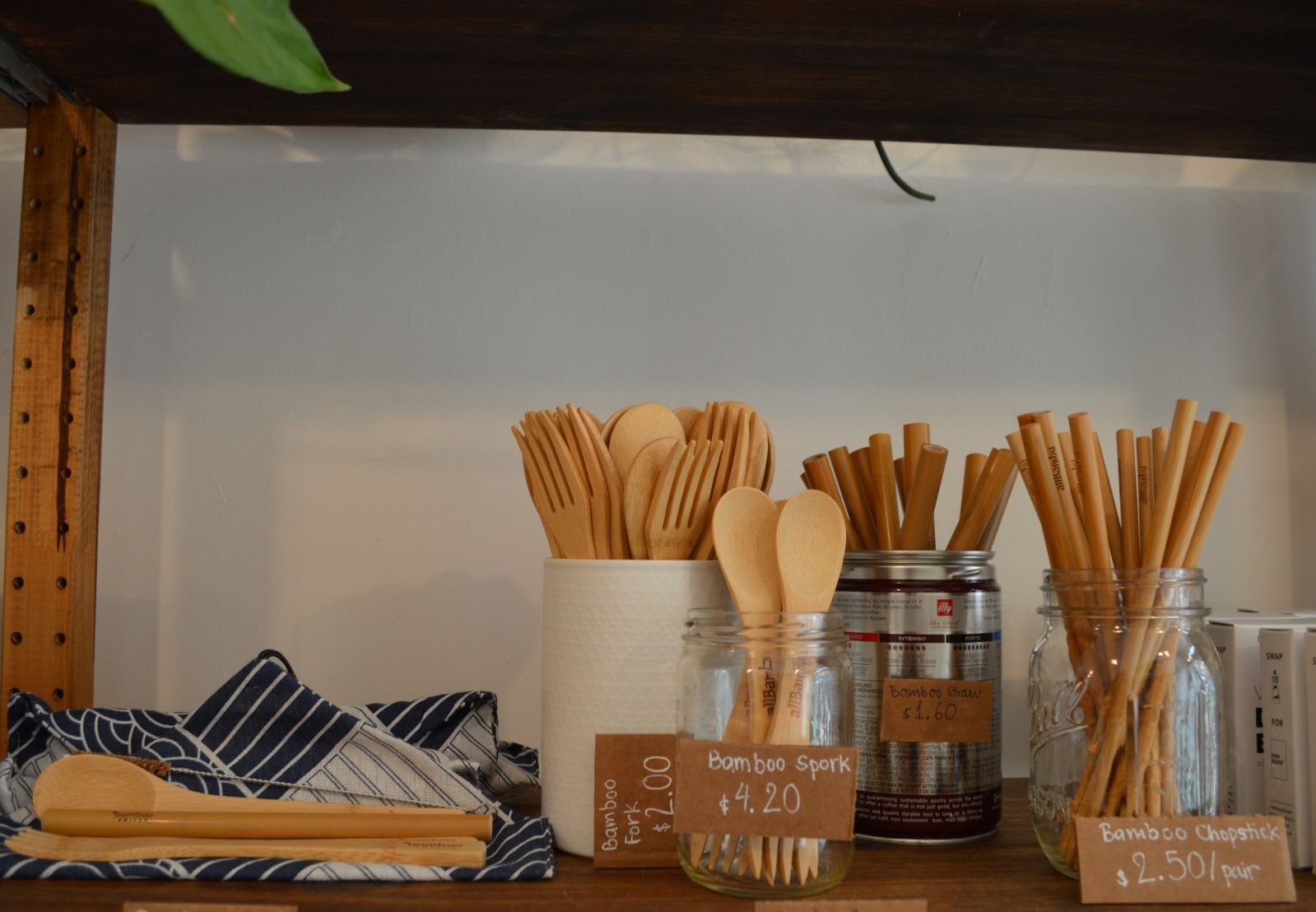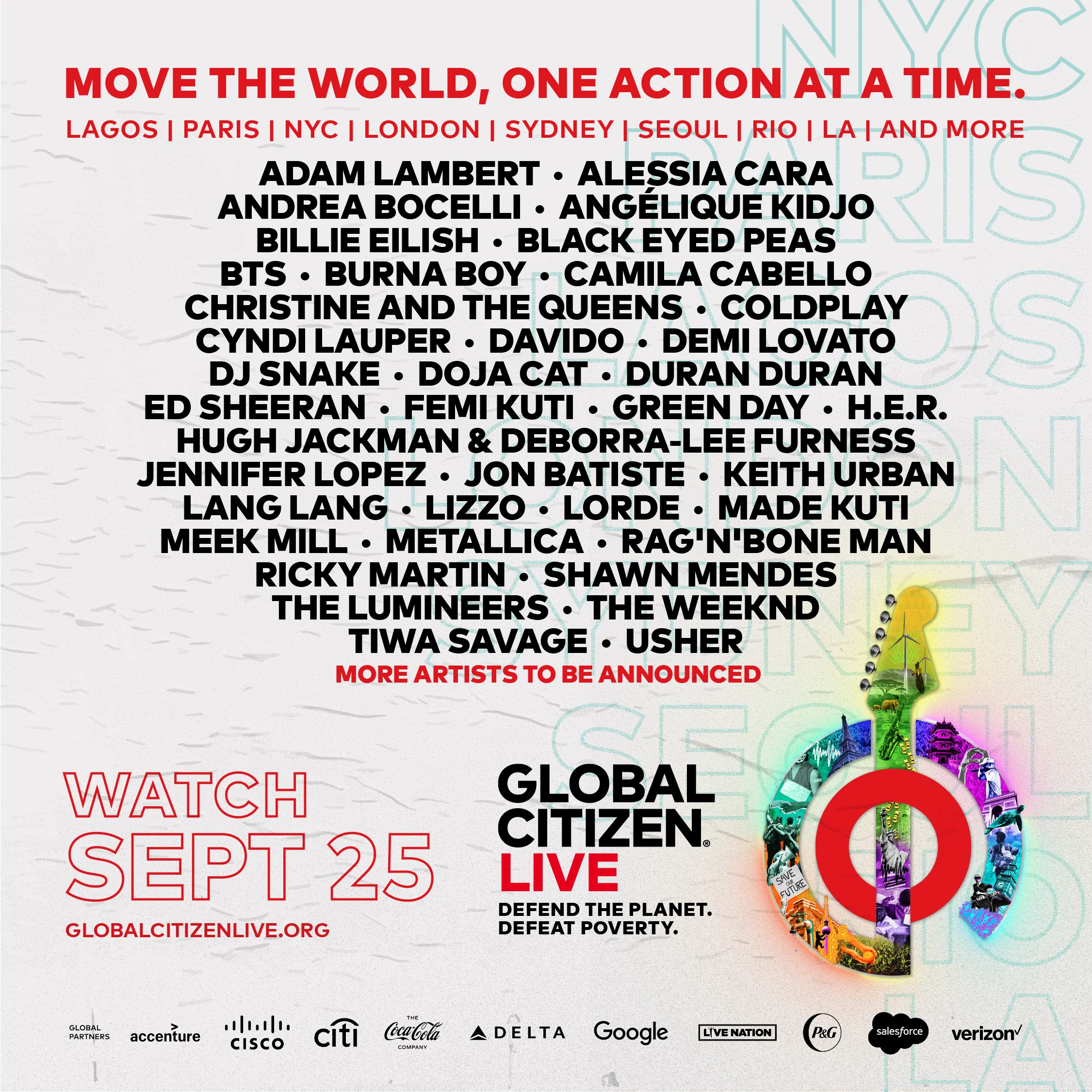I’ve always been cautious about my carbon footprint. Growing up, my science teachers warned me of the consequences of climate change and encouraged me to approach everything I do with the planet in mind. While that can sound like a lot of pressure to put on a kid, this mindset allowed me to weave sustainable practices into my everyday life without giving it much thought.
When I leave home for the day, I make sure to unplug any appliances that don’t need to be plugged in. I always have an empty bowl next to me when cooking so I can easily compost food scraps and leftovers. I’m not a vegetarian, but I try to eat mostly plant-based meals and support my local farmer’s market by purchasing fresh, local produce.
As part of my pledge to reduce single-use plastics, I wanted to challenge myself to find other ways to defend the planet through my individual actions. So I visited La Nature, a package-free store in Brooklyn, New York, to explore the plastic-free alternatives to products I use everyday.
Why Go Plastic-Free?
Plastic was first developed less than 200 years ago, but the plastic industry gained footing in the 20th century and quickly expanded as the material became celebrated for being a cheap and flexible packaging option. Simultaneously, environmentalists began to notice plastic waste piling up in landfills and waterways around the world.
When plastic breaks down, smaller fragments of it are easily transmitted through the natural environment. These microplastics can end up anywhere, hurting ecosystems and killing wildlife as animals ingest them. One 2018 report even found that the average person eats 70,000 microplastics each year.
Plastic isn’t supposed to degrade quickly — that’s part of what makes its durable design so attractive, as well as problematic. While plastic bags take nearly 20 years to decompose, other forms of plastic can take up to 1,000 years before they go away.
Recycled plastic can help stave off decomposition by giving the material another purpose, but only 9% of all plastic waste ever produced has been recycled. Meanwhile, the continual production of plastic is a huge emitter of greenhouse gases, a leading cause of climate change.
While we, as consumers, cannot reverse the effects of plastic pollution on the environment by ourselves, we can have a hand in moving toward a more sustainable future. This starts by seeking alternatives to plastic packaging materials.
What I Learned

The first thing I noticed walking into La Nature was that being a package-free store does not mean forgoing all types of packaging. It just means avoiding single-use plastic and choosing materials that can be composted, recycled, or reused to limit unnecessary waste.
This means that soap bars are wrapped in a thin paper sleeve to showcase their scent and brand. Shampoo bars sit naked on a shelf, but if you’re concerned about leaving a sticky residue in your pocket, you can opt to use a paper bag. If liquid shower supplies are more your thing, the refill station is stocked with various scents of shampoo, conditioner, and body wash to pump into your favorite container.
I decided to stock up on dish soap as a first step into the zero-waste lifestyle. While I use a ceramic dispenser at home, I usually buy large plastic containers of dish soap to refill it when I’m running low. To cut back on the amount of plastic I use, I brought a glass pasta sauce jar that I washed at home to fill with dish soap.

If I had refilled an empty plastic container instead of using a glass jar, that would’ve been OK, too. A large part of the harm of single-use plastics is in the name — they are designed to be used once and then thrown away, where they have the potential to damage the environment for hundreds of years before they degrade. At a package-free store, you can choose to give the plastic you already have a new purpose.
“Plastic itself is obviously not a great thing to be constantly buying, but if you buy it and reuse it infinite times, that’s fantastic because that just means you’re not wasting it,” Peter Rubinstein, co-founder of La Nature, told me.
Part of the appeal of package-free stores is being encouraged to use what you have instead of feeling compelled to buy new things.
A common barrier to living sustainably for people around the world is the upfront cost of reusable materials. As I walked around the package-free store, I calculated how many metal straws and compostable dish sponges I could buy without breaking my budget.

Stainless steel containers are great for taking food on the go, but they cost three to five times as much as the plastic ones. Trendy products like cloth bags, bamboo utensils, and Swedish dishcloths could jumpstart my zero-waste journey — but can I afford to pay for them all at once?
It’s true that these sustainable products are a great investment for both people and the planet. By making a one-time purchase of beeswax food packaging wraps, for example, you cut out the need to buy plastic wrap every few months, saving money in the long run. But if you want to start living sustainably without paying for it, repurposing the plastic products you already own is a great place to start.
I committed to stop incorporating plastic into my meals by buying a three-pack of beeswax food wraps to replace the plastic bags I use to hold sandwiches for lunch every day. I also purchased a reusable Swedish dishcloth to avoid using paper towels at home.
While I have a lot of work to do to end my reliance on plastic and reduce my carbon footprint, I know that starting small is better than not doing anything at all.
3 Tips to Start Shopping Sustainably
1. Plan ahead.
Shopping package-free doesn’t require you to buy anything you don’t already own. The next time you finish a jar of pasta sauce, don’t throw it out or even recycle it. Wash out the jar and save it for your next trip to the grocery store to buy bulk foods like nuts and beans or hold extra dish soap.
2. Carry a reusable bag.
Always be prepared for an impromptu shopping trip by carrying a reusable bag with you everywhere. Not only is it easier to hold items while you’re shopping, but it also cuts out the need to ask for a plastic bag.
It doesn’t have to be trendy or expensive to be effective — any bag will do!
3. Start small.
On your journey to live more sustainably, don’t feel compelled to throw out all of your shampoo, hand soap, and detergent that comes in plastic packaging — that would be wasteful! The next time you’re running low on an item, consider swapping it with a package-free alternative or repurposing the container.
You can join the Global Citizen Live campaign to defeat poverty and defend the planet by taking action here, and become part of a movement powered by citizens around the world who are taking action together with governments, corporations, and philanthropists to make change.
